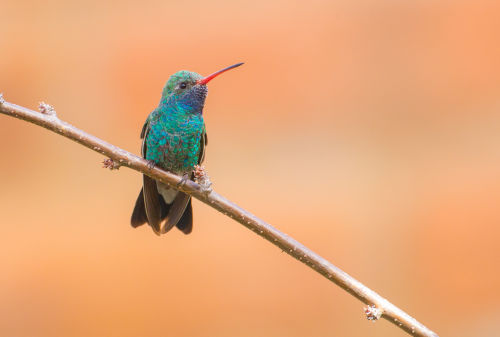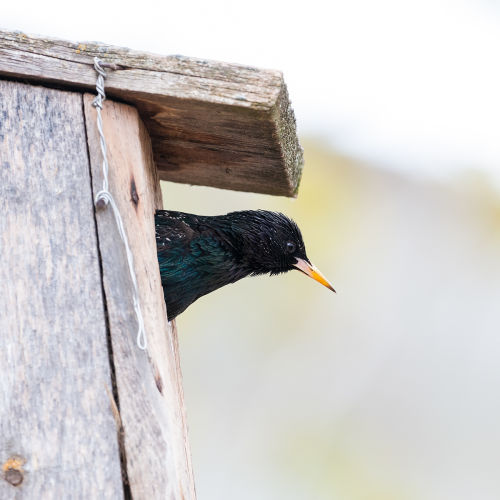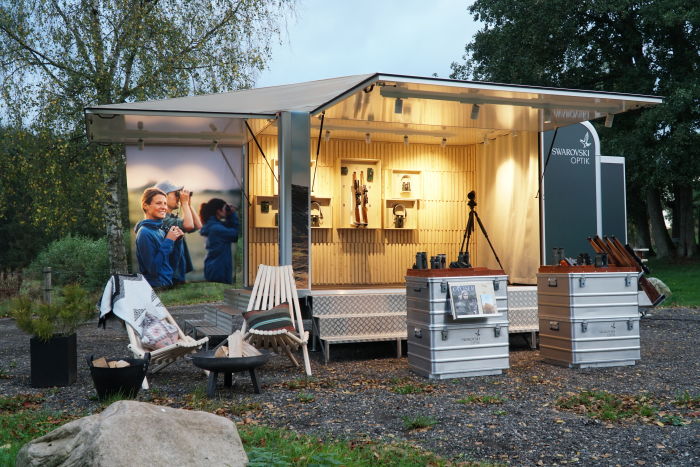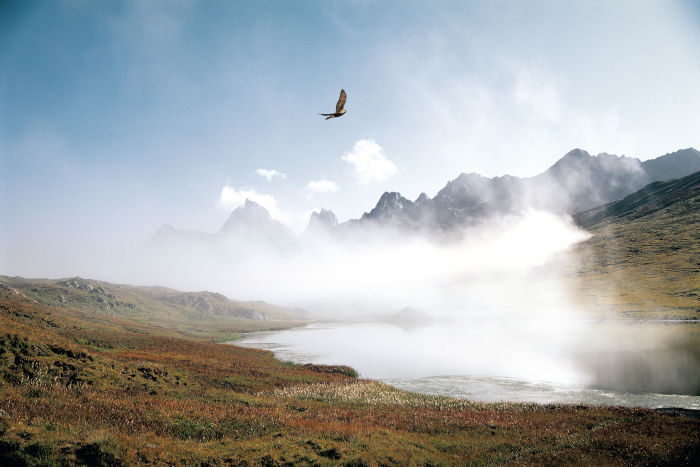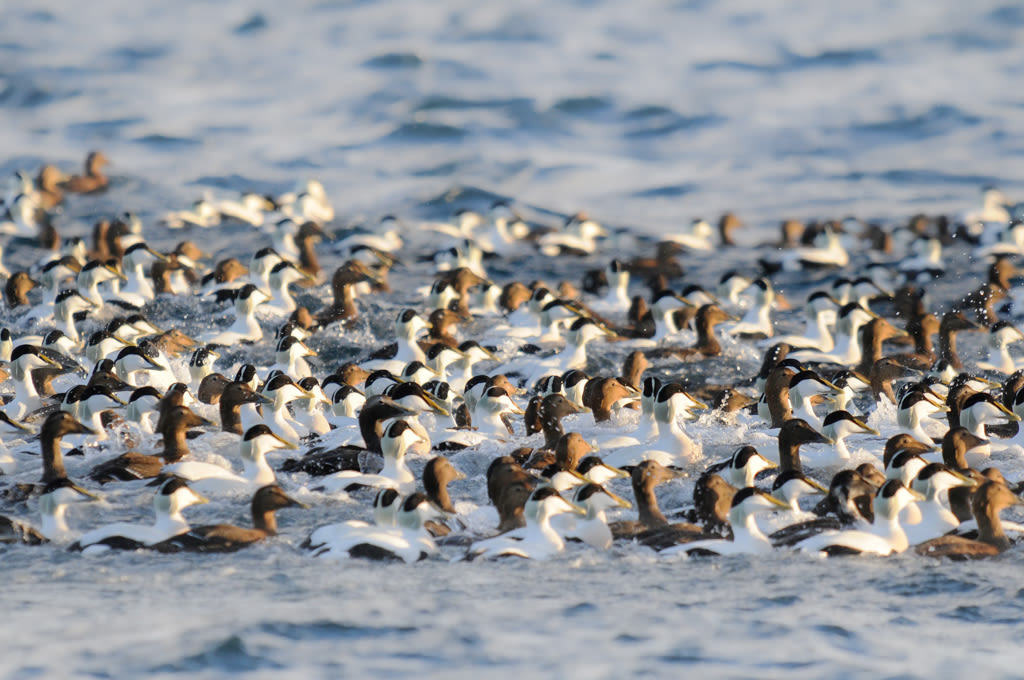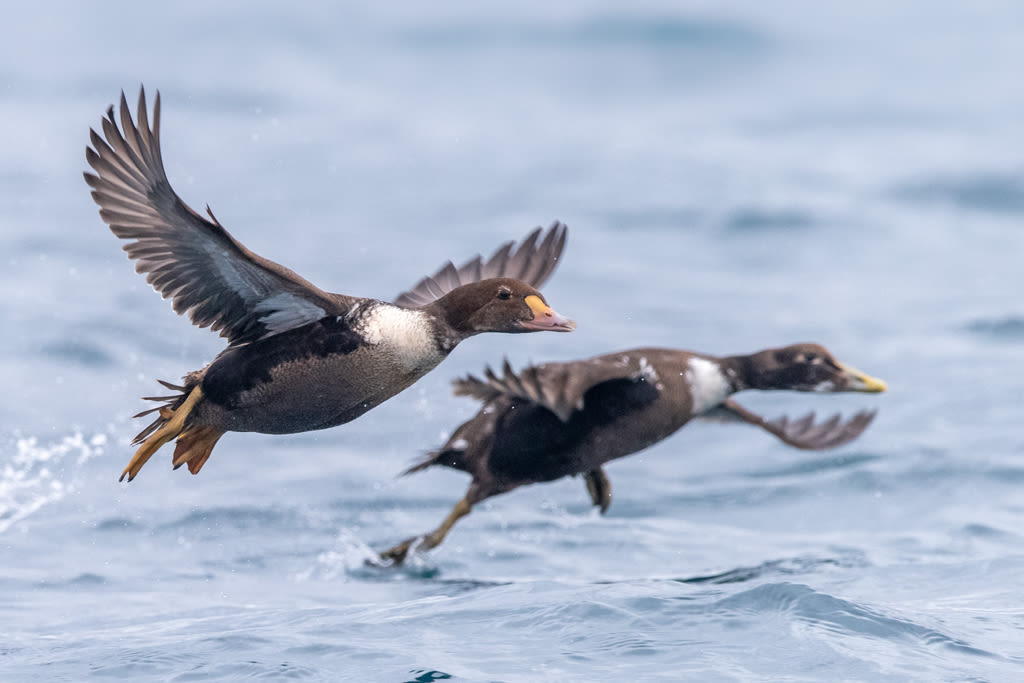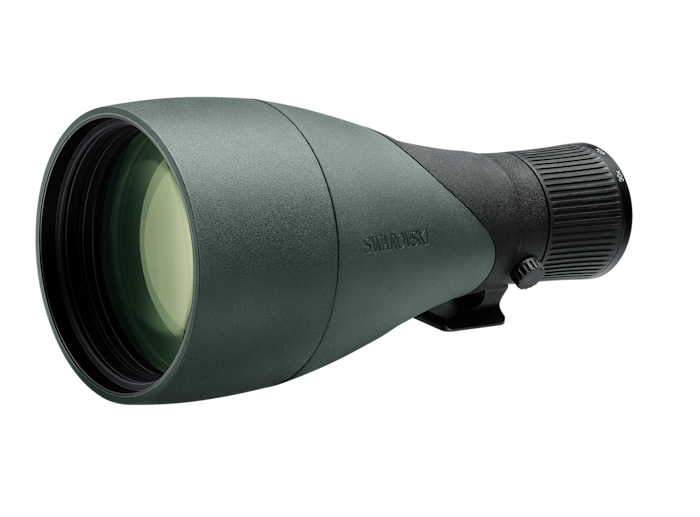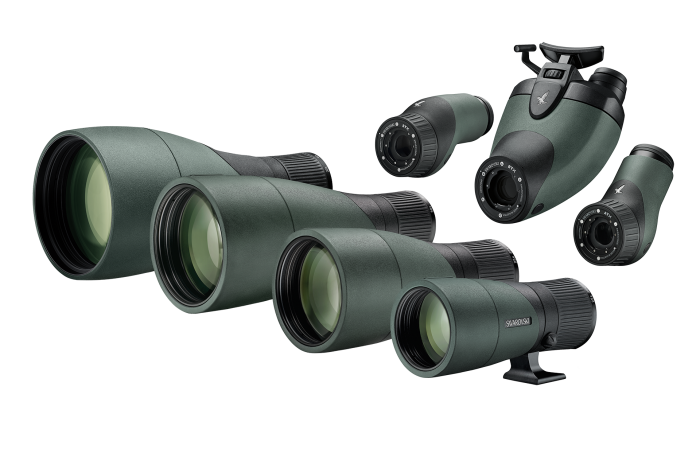A remote archipelago, surrounded by the North Atlantic Ocean and North Sea, the Shetland Islands are dominated by wind and wave. No season is this more prevalent than winter. Regularly battered by strong winds and powerful seas, many of our species of breeding birds move south to milder and more settled climates. Gulls, wildfowl and sea ducks become our birding focus. It is the gathering ‘rafts’ of winter Common Eider that authenticate the Shetland winter birding experience for me.
Congregating in flocks of up to 1,000 birds at times, these winter spectacles are truly impressive. Their evocative calls and gregarious feeding flocks in our inshore seas is the highlight of the season for me. But there is further rewards and even more excitement in these winter spectacles for the ‘rarity hunter’.

Brydon Thomason
Spotting the magnificent King Eider
With a beautiful pale blue hood and elaborate orange and red bill shield, a drake is unmistakable, even in a huddled flock of hundreds but an immature or a female, now that is another matter. Most of our Eider congregations are out of ‘binocular reach’ and so the scope is essential. With but a few hours daylight and often poor visibility though, even that can be challenging, particularly to pick out the plumage subtleties mentioned above.
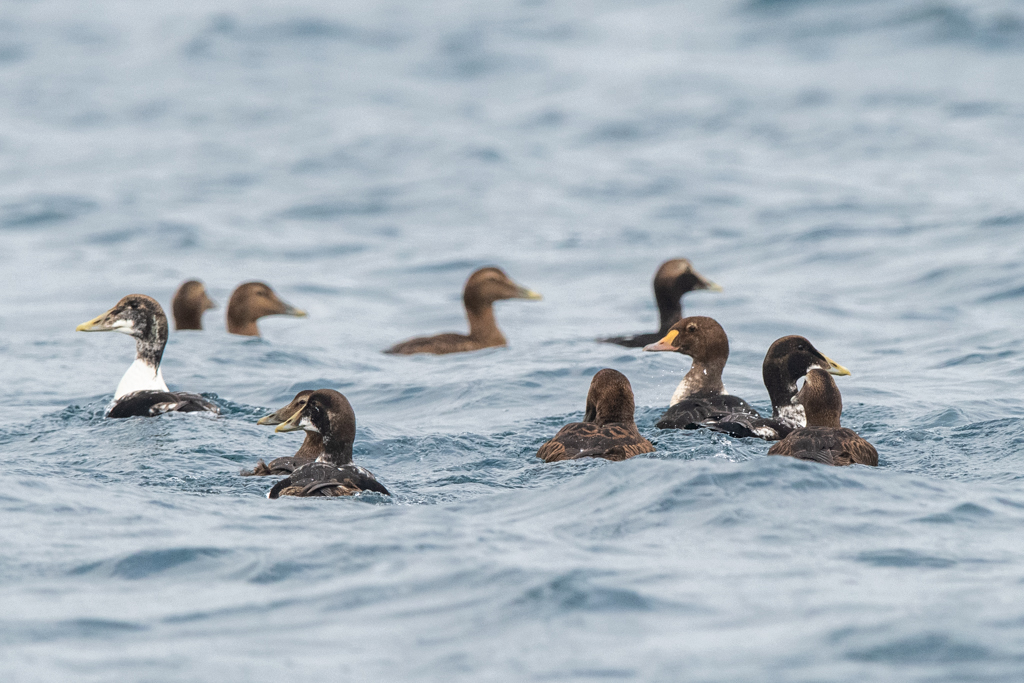
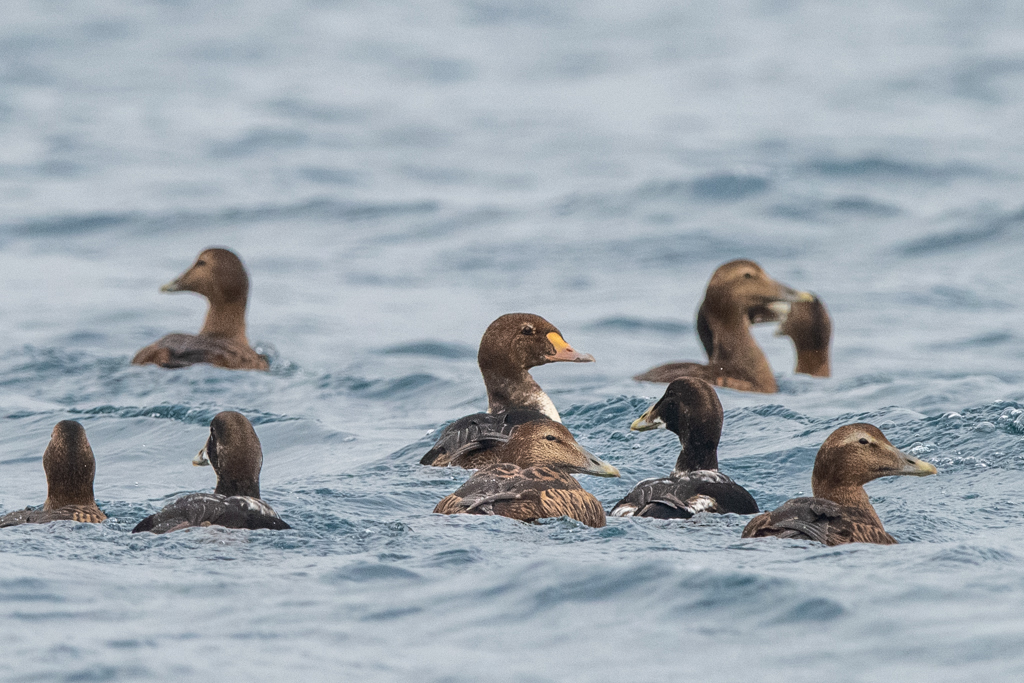
The 115-mm objective module brought this to a new level for me this winter and with it I was able to pick out this rather refined but very rewarding young drake King. Not yet a year in age, he is in his first winter plumage and so much of his overall coloration is similar to that of a female, with largely brown feathering. But with systematic study of the flock and closer study through the scope, (along with a little patience and optimism!) his pale orange bill shield that allowed me to find and identify him amongst the distant flock.
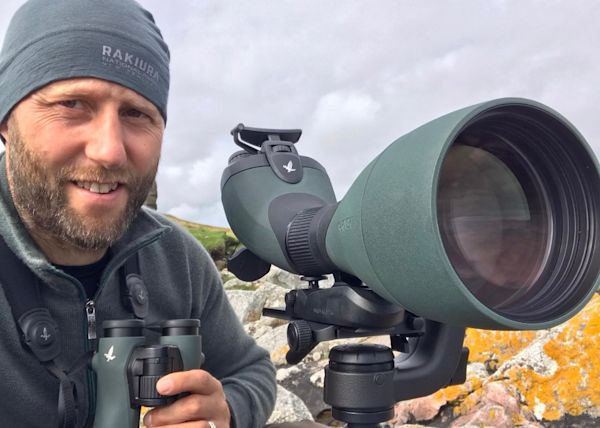
About the author:
Brydon Thomason
is naturalist consultant, photographer, guide and birder. With a lifetime of knowledge of his Shetland Islands homeland he owns and operates Shetland Nature, a wildlife tour company that celebrates the archipelagos rich natural and cultural heritage. He has worked as a media consultant, and appeared on numerous television productions about the islands wildlife, particularly the islands otters, his life’s passion. He co-authored the acclaimed book 'Otters in Shetland- the tale of the draatsi' sharing the lives, ecology and behaviour of one of Europe’s most charismatic mammals. He also works as an ornithological and ecological surveyor and consultant.
